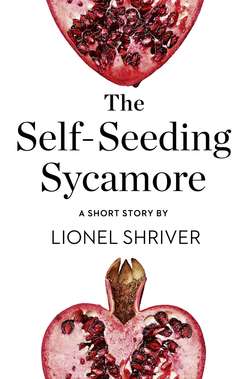Читать книгу The Self-Seeding Sycamore: A Short Story from the collection, Reader, I Married Him - Lionel Shriver - Страница 7
ОглавлениеTHE SELF-SEEDING SYCAMORE
LIONEL SHRIVER
JEANNETTE HAD NO IDEA that plants could engender so much hatred.
For years, she’d left the garden to Wyndham. Weekends outdoors provided an antidote to the windowless stasis of his lab. Though their plot was sizable only by London standards, she’d humoured him. (Whatever was there to do? A little watering during dry spells, a ten-minute run of the hand mower round the lawn.) Having begrudged the dear man neither his solitude nor his superfluous pottering, she treasured snapshots of her husband in muddied khaki trousers, bent over a bed, doing heaven-knew-what with a characteristically intent expression. Now, of course, she knew exactly what he’d been doing. How much he’d spared her.
While still cosseted by mutual spousal existence, she’d scanned with indifference bitter first-person articles about how fiercely people avoid the bereaved – a revelation her own friends had amply illustrated for a year or more. She didn’t blame them. Unintentionally, she and Wyndham had fallen into the heedlessly hermetic unit of two that’s so off-putting from the outside. If she didn’t need friends then, she’d no right to demand their solicitations now. Besides, she’d grown less compelling to herself. A widow of fifty-seven had both too much story left, and not enough. It was narratively awkward: an ellipsis of perhaps thirty years, during which nothing big would happen. Only little things, most of them crap.
The big story that was over wasn’t interesting, either. Pancreatic: swift and dreadful. Yet the pro forma tale did include one poignant detail. Two years ago, she and Wyndham took early retirement, he from private biochemical research, she from her job as a buyer for Debenhams. Some colleagues had quietly disapproved, and soon no one would be allowed to stop working at fifty-five, but to Jeannette and Wyndham that argued for a leap through the closing window. They’d not found each other until their forties, and had made extravagant travel plans for while they were still in rude health. The reasoning was sound; the arithmetic, not. The diagnosis arrived a mere ten weeks after Wyndham’s farewell party.
She hadn’t kept track of whether fifty-seven was the new forty-seven, or thirty-five, or sixty-four – but in any event whatever age she’d reached was not the age she was. Not long ago, she and Wyndham had mourned his every strand that clogged the plughole, each new crease in her neck when she glanced down. Now? She could not get older fast enough.
Convinced that a garden took care of itself – it grew, bloomed, browned and without prodding renewed the cycle – other than hiring a boy to mow, for the year following Wyndham’s death she left the back to its devices. In truth, she missed the sharpness of those first few months, whose high drama would have been impossible to maintain without its sliding into a humiliating fakery, a performance for herself. While still free-flowing and unforced, the grief had been so immersive, so rich and pure and concentrated, with the opacity of Cabernet, that it verged on pleasure. Yet from the start the anguish had been spiked with an awful foreknowledge that the keenness of her loss would blunt, leading to a second loss: a loss of loss. Some soft, muffled bufferedness was bound to take over, as if she were buttressed by excess packaging. Unlike the searing period, with its skipped meals and feverish lie-ins, a bufferedness could last forever, and probably would.
Sure enough, the stab ebbed to ache; a torturous residual presence gave way to absence. Jeannette took refuge in self-sufficiency. She would take nothing (besides that reduced-rate pension), and expect nothing. There must have been millions of such Britons: perfectly neutral social quantities, mutely shopping and tidying up. She would take care of herself, as the garden did.
So late this April, she was surprised to note on an aimless stroll beyond the slug-trailed patio, simply to escape the house – which had never felt suffocating when she shared it – that flowering shrubs past their prime were pooping mounds of rotting pink blossoms, under which matted grass skulked, dying or dead, a urinary yellow. Ineffectually, she raked the piles of petals with her fingers off the moribund lawn, in idle amazement that flowers could kill. The silky mulch had a nice heavy wetness, reminiscent of her cheeks after an inadvisable third glass of wine. Its original perfume mixed with an aroma deader and flatter, like sweet but fading memories intermingling with her present self-sufficiency.
She surveyed the beds on either side. Pooping flowers were the least of it. Unafflicted by Wyndham’s “superfluous” attentions, the ceanothus had bushed out in scraggly extrusions like an unbarbered Afro, blocking the stone path to the tool shed and poking her in the eye. Ivy had choked the herbs; the ferns drooped with snails. Weeds snarled around Wyndham’s languishing plants. The lawn had bare patches from peeing foxes, vermin she’d been too apathetic to shoo. She couldn’t speak for the human sphere, but apparently in the botanical world, without the constant intercession of a benevolent higher power, evil triumphed.
